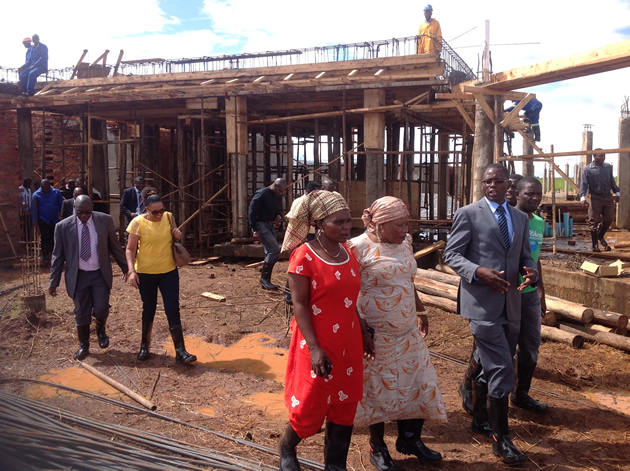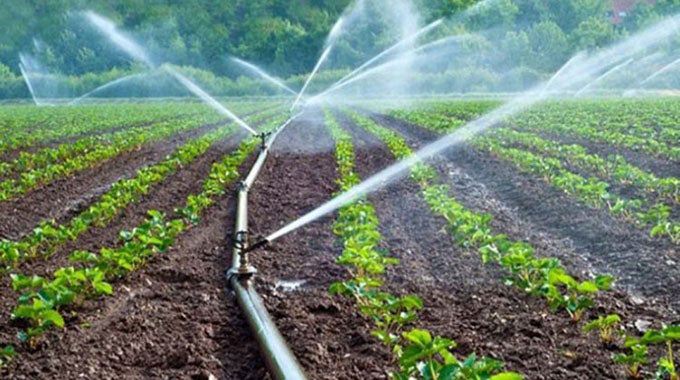Women: Agriculture’s unsung heroines
Zimbabwe is in the middle of a promising farming season that has seen the country receiving lots of rainfall compared to previous seasons.
As I write this column, many farmers have finished weeding and applying top dressing fertilisers though the heavy rains that continue to pound every corner of the country, with floods having been reported in Masvingo and several low-lying areas across Zimbabwe, are their greatest setback.
With the farming season already at an advanced stage, it is during this time of the year that the family unit is at its most effective, as each member regardless of their gender play a pivotal role in ensuring that the family is assured of high agricultural output.
However, women have often played crucial roles in farming activities either as farm labourers or at household level, where they are actively involved from the preliminary planning stages and are sometimes tasked with choosing the viable crop that the family would need to focus on for that particular season, right up to harvesting.
For some, that is also the period when they have to say goodbye to urban life and rejoin their in-laws and other relatives in the village to ensure a smooth running farming season, and only rejoin their husbands some months later.
If anything, in a number of farming activities that take place throughout the country and across the region, it has been noted that women are actively involved. Their contribution alone is crucial in the sustenance of agricultural activities not only in Zimbabwe but across Africa and other continents that rely on farming as a source of livelihood.
For example, African women farmers are estimated to produce 20 percent more than men with the same access to land and inputs, a clear indication that they can effectively utilise land once they have access to inputs and other resources in addition to their labour.
With such figures, there is no doubt that given the necessary support and resources, women can actually contribute a lot more towards the GDP with farming than is currently happening.
And the question that has often been on the lips of many NGOs and civic society is: “How much could global agricultural produce increase if women had the same access of support and services with men?”
A study on the subject revealed that women’s contribution to agricultural cuts across regions and has actually resulted in new innovations and developments that are crucial to the sustainability of agriculture in several African countries.
For instance, in post-genocide Rwanda, women have major contributions to the economic recovery of the country by spearheading a number of agricultural activities to support their families.
This was as a result of changes in policy that allowed land ownership by women, who are now heading households in that country. It also followed from women seeking knowledge in the production of coffee, available from agricultural extension workers.
The same feat has been repeated in Namibia where, according to one Shirley Malcolm, women moved in and saved a palm tree conservation project that was failing.
It is said that palm trees were beginning to die months after women were asked to cut production of baskets made from palm leaves.
However, it was later discovered that the palm trees were dying not so much because women were using more in weaving baskets, but the trees were actually dying because their care had been transferred from women and had been given to men, who apparently didn’t have time to care for them.
Another example closer home is that of Malawi which for the last few years has earned itself pole position of being the breadbasket of the region when it comes to agricultural production.
The country’s agricultural success can be attributed to a number of factors chief among them the availability of subsided agricultural inputs to the farmers and the input of female farmers, whose involvement to farming dates back more than three decades ago.
Looking closely at all these women who have made a vast contribution in agriculture in their respective countries you can’t help but have a sense of pride in what they do and are willing to go the extra mile to achieve more.
It is also clear that they are also driven by passion to achieve more because they do have a sense of ownership and are equal partners of whatever yields and subsequent profits they get at the end of each farming season.
But how many of our women here in Zimbabwe feel that way, or how many of our women are in full control of the land they are tilling?
Better still, how many women get the pay cheque of the tobacco or cotton once it has been sold, regardless of the fact they have been actively involved in the production of the crop until it is loaded into Matanhi’s lorry and heads for the auction floors?
Hardly a year passes without reading a tragic story of a woman committing suicide on realising that proceeds from the sale of their crops were squandered and probably used to marry a second wife, leaving nothing for the wife and the children, who slaved throughout for the production of the crops.
As farmers proceed with their farming activities, many tragic scripts are also being written whose ending will be unveiled once the farming season is over and the family is expecting rewards for the season they toiled endlessly to get a bumper harvest.








Comments